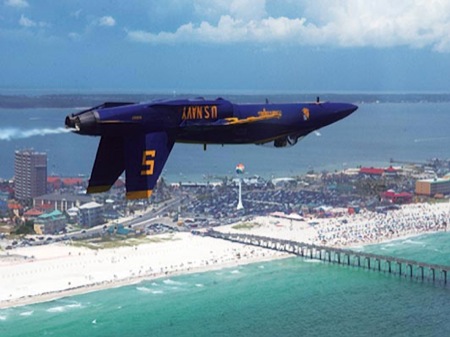
As a giant oil spill caused by the April 20 explosion of the Deepwater Horizon oil rig spread across the Gulf of Mexico toward the American shoreline, state and local tourism officials in the threatened states sprung into action to provide the traveling public with up-to-date information and status reports.
“When it first started, we immediately put a link on our website giving daily updates to tell visitors the beaches are open and that there has not been any projection of oil coming to our area yet,” said Laura Lee, director of communications for the Pensacola Bay Area Convention and Visitors Bureau in the Florida panhandle.
“We also posted a webcam on our website so people could see with their own eyes that the beach is clear. We want to let people know if there is a change in beach safety, then we will be the first to tell them.”
Trusted source
At press time, the leak continued to spill more than 200,000 gallons of crude into the Gulf of Mexico each day despite efforts to cap it. With worst-case scenarios predicting the leak may continue for months before it is capped, most Gulf Coast CVBs and state tourism offices sought to be a trusted source of information for travelers, posting links to official websites and other updates on the status of their beaches.
“We have gone live with a new website — www.mobiletravelupdates.com,” said Leon Maisel, president and CEO of the Mobile Bay Area Convention and Visitors Bureau in Alabama. “It’s not pure reportage. If they want details on where the oil spills are moving, they need to check that out on CNN. Ours is focused on what is happening for visitors of Mobile Bay.”
The Alabama Tourism Department and the Alabama Gulf Coast CVB, using funds from BP, launched a $1.5 million beach marketing campaign in May with commercials airing on approximately 50 television stations around the country.
“Never more beautiful”
The commercials proclaimed, “the beaches of Alabama have never been more beautiful.” A separate commercial promoted the charter boat industry.
Two public relations staff members from the Alabama state tourism department were dispatched to a unified command center in Mobile to respond to on-site media inquiries.
With some of the beaches in Louisiana closed from contact with oil, the Louisiana Office of Tourism has worked to make sure potential visitors know that most of the Louisiana Gulf Coast remains open for recreation and commercial fishing. Their frequently updated oil spill coverage highlights the fact that the state’s nine coastal counties not only offer beaches, but also cultural treasures, historic sites, world-famous music and acclaimed cuisine.
The state website also emphasizes that more than 75 percent of Louisiana’s coastal waters extend westward from the Mississippi River, while the main area affected by oil lies east of the river. More information also exists on their emergency.louisiana.gov website, which give up-to-date information with trajectory maps and information on beach closures.
Social media utilized
All of the Gulf Coast states’ websites have special sections with oil spill updates. Some CVBs are also calming fears via social media sites.
“We asked vacationers to put up their travel photos on Facebook so people could see real tourists enjoying the beach,” said Pensacola’s Lee. “People were cancelling their vacations here thinking we had been affected, so we posted visitors’ beautiful pictures of the beach to reassure people.
“Many hotels have waived their two-week no refund policy so people won’t cancel early but will wait until closer to their vacation to see if they need to cancel. It’s one of the ways the local area is helping to give people peace of mind about coming here.”
Most CVBs have links to the official website for the oil spill at, www.deepwaterhorizonresponse.com. The site, run by the National Oceanic and Atmospheric Administration, the U.S. Coast Guard and BP, constantly updates information about the leak and projects where the oil spill is headed.
During the waiting period, coastal communities like Pensacola and Mobile Bay have already put in barrier booms and organized cleaning teams in case the oil does head their way.
“The beaches are manageable and easily cleaned,” said Maisel. “What we are concerned about are the marshes where the fish are born. I think we are doing a great job in making sure the marsh grasses are not a victim to the oil. This can still be a wonderful vacation for someone.”
Quick Response:
Successive Disasters have industry playing defense











